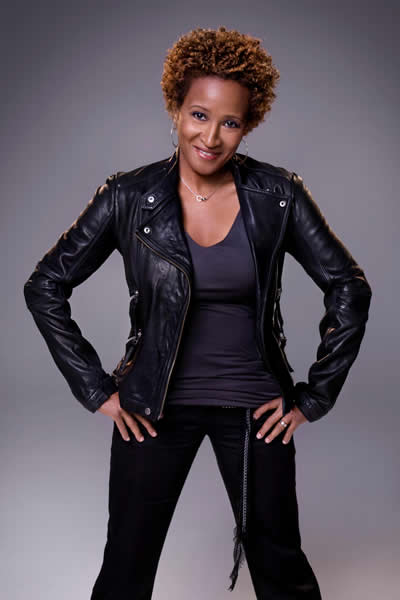Arts & Entertainment
Howard renaissance
Historic D.C. theater reopens with lesbian Sykes headlining
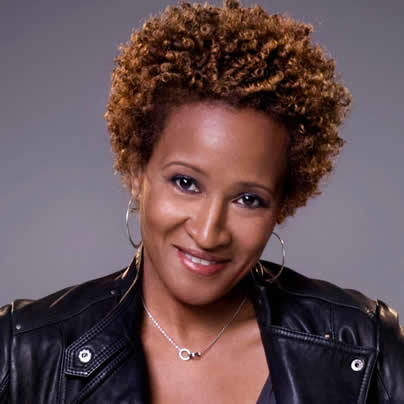
Wanda Sykes
8 p.m. (doors open 6)
April 13
Howard Theatre
630 T Street, NW
$95 general admission tables, $125 booths
Some venues, especially large arenas and sheds named after financial institutions or phone companies, are just venues — big sterile caves with concrete slab floors and tacky concession stands selling hot dogs and nachos in the lobby. They usually have less personality than your average shopping mall.
Then there are spots whose walls practically hum with historic significance — the Apollo, Radio City Music Hall, Red Rocks and so on. One of the country’s lost gems has been rediscovered and after a $29 million restoration, is almost ready to be unveiled — D.C.’s Howard Theatre, the Shaw-based concert hall that hosted singers such as Duke Ellington, Ella Fitzgerald, Marvin Gaye and the Supremes. The refreshingly cool catch? One of the anchor performers for opening weekend is an out-and-proud lesbian — comedian Wanda Sykes.
And Sykes is psyched.
“I’m really honored they asked me to come help open it,” she says during a phone interview last week from Australia where she’s touring. “I was like, ‘Of course, yeah,’ I’m very excited, very honored. It’s pretty spectacular. They wanted to send me some pictures, but I said, ‘No, let me wait and see it when it’s fully done.’ I wanna get the full impact in person.”
The 12,000-square-foot space, which, depending on the show, can accommodate either 650 seated or 1,100 standing, opened in 1910 as a spot for vaudeville, theater, talent shows and two performance companies, the Lafayette Players and the Howard University Players (it’s never been affiliated with nearby Howard University). After the stock market crashed in 1929, it was briefly a church until 1931 when it was changed back into a performance space and launched with Washingtonian Duke Ellington playing the first night. Fitzgerald and Billy Eckstine won early talent contests there. After black performers as diverse as Lena Horne, Pearl Bailey, Aretha Franklin, James Brown, Smokey Robinson and more played there over the years, it suffered a blow after the 1968 D.C. riots and eventually closed in 1980.
The rapper Wales, a D.C. native, is officially the first performer for the refurbished theater. He plays a soft opening on Monday. A grand opening gala and tribute concert for Motown founder Berry Gordy is Thursday with performers Robinson, Al Jarreau, Keb Mo and others. Then Sykes plays next weekend with shows on April 13, 14 and 15.
But she’s not just an of-the-moment contemporary black performer who happened to be available. Reps from the theater say she’s a logical successor to Moms Mabley, the late great comedian who did lesbian stand-up routines as far back as the ‘20s.
“Wanda is perfect to re-launch the Howard Theatre because she really represents a continuum between herself and Moms Mabley,” says Marc Powers, director of marketing for the Howard. “Moms Mabley was one of the leading women comedians in America in the ‘20s and ‘30s and she really got her start here at the Howard. Wanda Sykes is also kind of that charming, girl-next-door type. She helps people get close to her as she criticizes America about sexuality, about class warfare … Moms Mabley was much the same thing and even though people say she wasn’t a lesbian, she was … Moms Mabley was cutting edge and there’s a very strong gay and lesbian history at the Howard.”
Other performers slated for the coming months include the Roots (April 15), Chaka Khan (May 5), Esperanza Spalding (May 12) and Bettye LaVette (Oct. 27). Bi bassist/singer Meshell Ndegeocello plays April 25.
The venue will be managed by Blue Note Entertainment Group. After being added to the National Register of Historic Places in 1974 and tagged on President Clinton’s “Save America’s Treasures” list in 2000, a non-profit Howard Theatre Restoration was formed in 2006 to raise funds for the restoration. The Restoration raised nearly $2 million — city government gave $12 million in grants and tax credits while Eagle Bank stepped in with the remainder. Work began in September 2010.
Powers says there’s a lot of buzz and excitement at the theater as staff gear up for next weekend’s opening festivities. Some finishing touches are still being added — seat padding, sound system and lighting tweaks, paneling.
He says the Howard won’t be a relic — it’s designed to be a versatile, thriving space where music of many genres and performers of all races can thrive.
“We’re going to have such an array of talent, it’s really going to be what the Howard has always been — the theater of the people,” Powers, who’s straight, says. “The people of D.C. are diverse, so we’ll represent that and there will be shows that appeal to people from all walks of life.”
Sykes busy with touring, film
Wanda Sykes says life is good. During a mid-week chat last week from Australia where she’s performing a two-week mini-standup tour, she says she’s having fun.
“They’re very nice here, but it’s kind of a phony nice,” she says from her hotel in Melbourne. “It’s that passive-aggressive-type nice. Like the other day at breakfast, I asked for a mimosa and she looked at me kinda funny. I said, ‘You know, Champagne and orange juice,’ and she smiled but it was that fake smile like she was saying, ‘That’s the shit you drink for breakfast.’”
Sykes and her wife, Alex, have twins who will be 3 at the end of the month. She says they’re “doing great” and though both parents travel extensively for work, they’re in a solid routine that works.
“When I’m there, we get the real quality time together and they’re used to both of us traveling so it just works,” she says.
Sykes is mainly touring these days though she just finished an independent film called “Hot Flashes.” Listen for her in “Ice Age 4” this summer.
When we talked, Sykes hadn’t heard of her former co-star Jane Fonda’s latest turn as Nancy Reagan but says she’ll be curious to see the film when it’s finished.
“I love Jane and we keep in touch,” Sykes says. “She’s great. She’s just totally Hollywood royalty and she was so gracious when we worked together. I was nervous [about “Monster-in-Law”]. I’m thinking, ‘Oh my God, I’m gonna be in this movie with Jane Fonda,’ but after you meet her, you just calm down and you realize she’s just a good broad, she really is.”
Sykes says other than getting invited to every LGBT event imaginable, the biggest difference in her work since coming out is her ability to be freer on stage.
“It was so liberating,” she says. “There’s nothing hanging over my head, so it’s been great career wise. There hasn’t been anything that would make me go, ‘Oh no, I regret it.’ It’s all been very positive. I’m very happy and grateful.”
JOEY DiGUGLIELMO
Theater
José Zayas brings ‘The House of Bernarda Alba’ to GALA Hispanic Theatre
Gay Spanish playwright Federico García Lorca wrote masterpiece before 1936 execution

‘The House of Bernarda Alba’
Through March 1
GALA Hispanic Theatre
3333 14th St., N.W.
$27-$52
Galatheatre.org
In Federico García Lorca’s “The House of Bernarda Alba,” now at GALA Hispanic Theatre in Columbia Heights, an impossibly oppressive domestic situation serves, in short, as an allegory for the repressive, patriarchal, and fascist atmosphere of 1930s Spain
The gay playwright completed his final and arguably best work in 1936, just months before he was executed by a right-wing firing squad. “Bernarda Alba” is set in the same year, sometime during a hot summer in rural Andalusia, the heart of “España profunda” (the deep Spain), where traditions are deeply rooted and mores seldom challenged.
At Bernarda’s house, the atmosphere, already stifling, is about to get worse.
On the day of her second husband’s funeral, Bernarda Alba (superbly played by Luz Nicolás), a sixtyish woman accustomed to calling the shots, gathers her five unmarried daughters (ages ranging from 20 to 39) and matter-of-factly explain what’s to happen next.
She says, “Through the eight years of mourning not a breeze shall enter this house. Consider the doors and windows as sealed with bricks. That’s how it was in my father’s house and my grandfather’s. Meanwhile, you can embroider your trousseaux.”
It’s not an altogether sunny plan. While Angustias (María del Mar Rodríguez), Bernarda’s daughter from her first marriage and heiress to a fortune, is betrothed to a much younger catch, Pepe el Romano, who never appears on stage, the remaining four stand little chance of finding suitable matches. Not only are they dowry-less, but no men, eligible or otherwise, are admitted into their mother’s house.
Lorca is a literary hero known for his mastery of both lyrical poetry and visceral drama; still, “Bernarda Alba’s” plotline might suit a telenovela. Despotic mother heads a house of adult daughters. Said daughters are churning with passions and jealousies. When sneaky Martirio (Giselle Gonzáles) steals the photo of Angustias’s fiancé all heck kicks off. Lots of infighting and high drama ensue. There’s even a batty grandmother (Alicia Kaplan) in the wings for bleak comic relief.
At GALA, the modern classic is lovingly staged by José Zayas. The New York-based out director has assembled a committed cast and creative team who’ve manifested an extraordinarily timely 90-minute production performed in Spanish with English subtitles easily ready seen on multiple screens.
In Lorca’s stage directions, he describes the set as an inner room in Bernarda’s house; it’s bright white with thick walls. At GALA, scenic designer Grisele Gonzáles continues the one-color theme with bright red walls and floor and closed doors. There are no props.
In the airless room, women sit on straight back chairs sewing. They think of men, still. Two are fixated on their oldest siter’s hunky betrothed. Only Magdelena (Anna Malavé), the one sister who truly mourns their dead father, has given up on marriage entirely.
The severity of the place is alleviated by men’s distant voices, Koki Lortkipanidze’s original music, movement (stir crazy sisters scratching walls), and even a precisely executed beatdown choreographed by Lorraine Ressegger-Slone.
In a short yet telling scene, Bernarda’s youngest daughter Adela (María Coral) proves she will serve as the rebellion to Bernarda’s dictatorship. Reluctant to mourn, Adela admires her reflection. She has traded her black togs for a seafoam green party dress. It’s a dreamily lit moment (compliments of lighting designer Hailey Laroe.)
But there’s no mistaking who’s in charge. Dressed in unflattering widow weeds, her face locked in a disapproving sneer, Bernarda rules with an iron fist; and despite ramrod posture, she uses a cane (though mostly as a weapon during one of her frequent rages.)
Bernarda’s countenance softens only when sharing a bit of gossip with Poncia, her longtime servant convincingly played by Evelyn Rosario Vega.
Nicolás has appeared in “Bernarda Alba” before, first as daughter Martirio in Madrid, and recently as the mother in an English language production at Carnegie Melon University in Pittsburgh. And now in D.C. where her Bernarda is dictatorial, prone to violence, and scarily pro-patriarchy.
Words and phrases echo throughout Lorca’s play, all likely to signal a tightening oppression: “mourning,” “my house,” “honor,” and finally “silence.”
As a queer artist sympathetic to left wing causes, Lorca knew of what he wrote. He understood the provinces, the dangers of tyranny, and the dimming of democracy. Early in Spain’s Civil War, Lorca was dragged to the the woods and murdered by Franco’s thugs. Presumably buried in a mass grave, his remains have never been found.
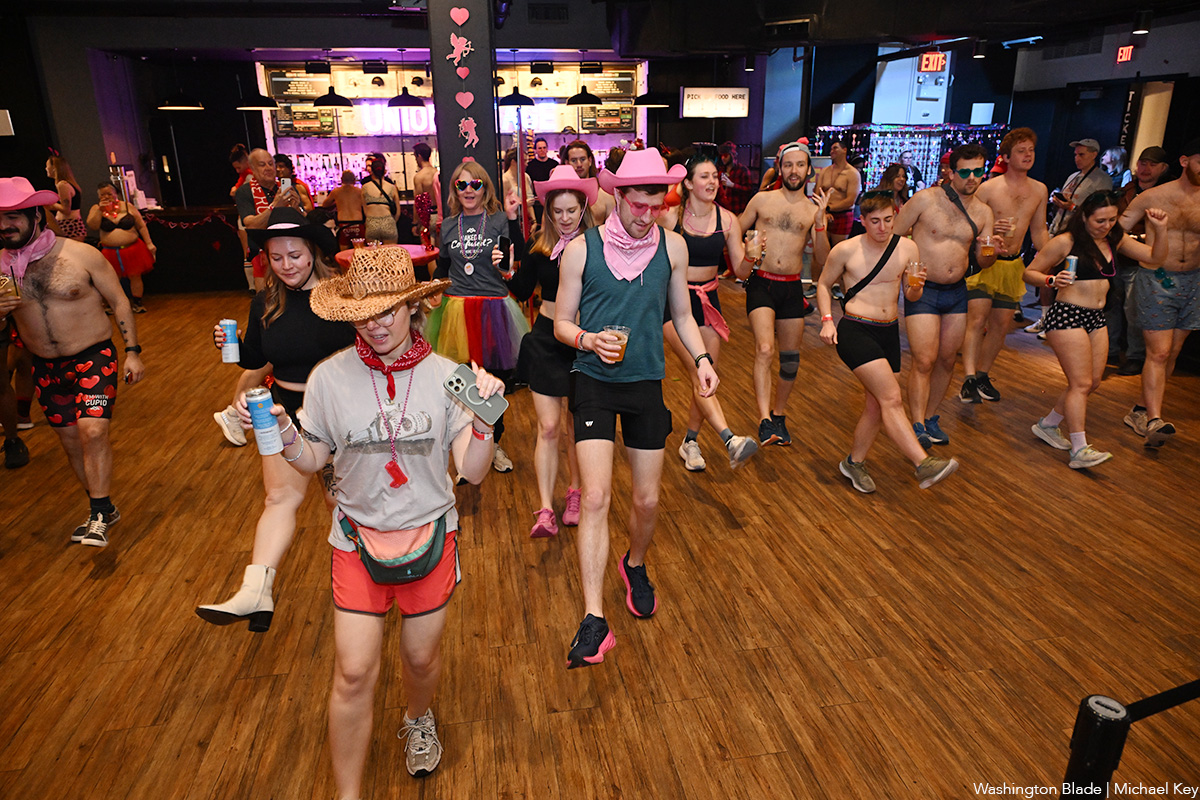
Cupid’s Undie Run, an annual fundraiser for neurofibromatosis (NF) research, was held at Union Stage and at The Wharf DC on Saturday, Feb. 21.
(Washington Blade photos by Michael Key)
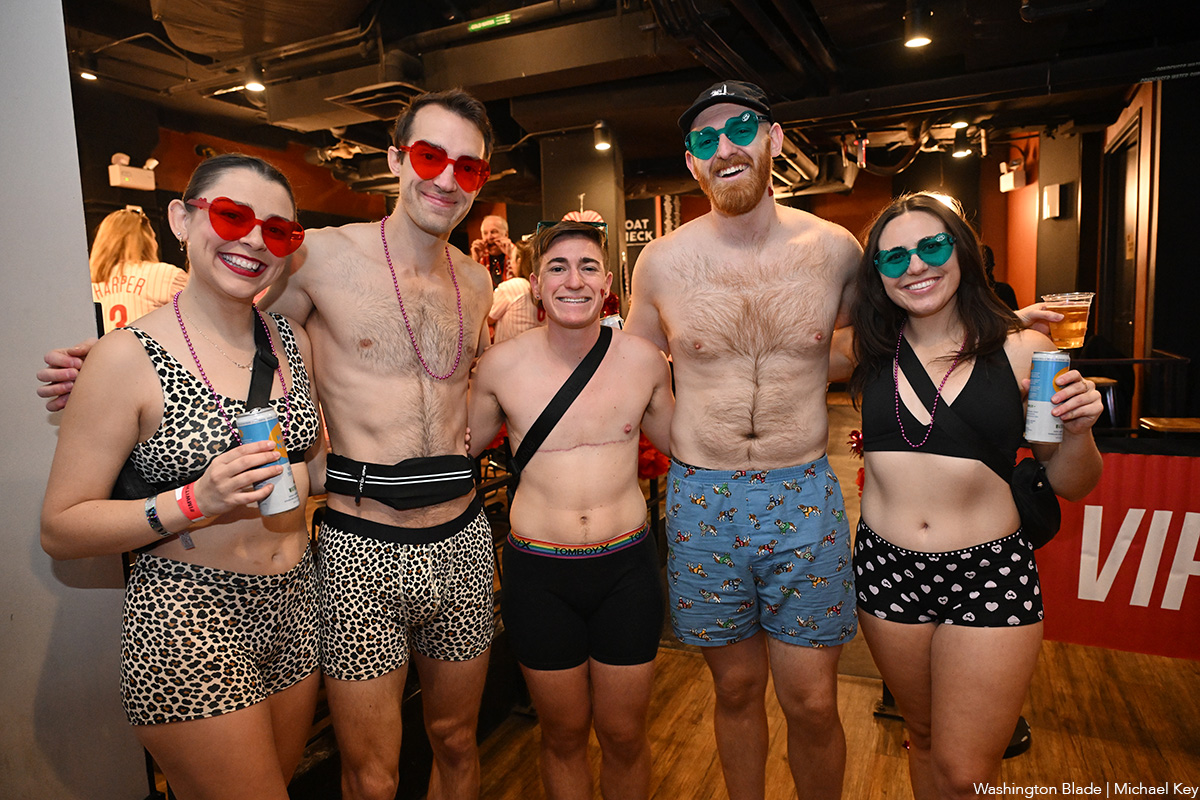
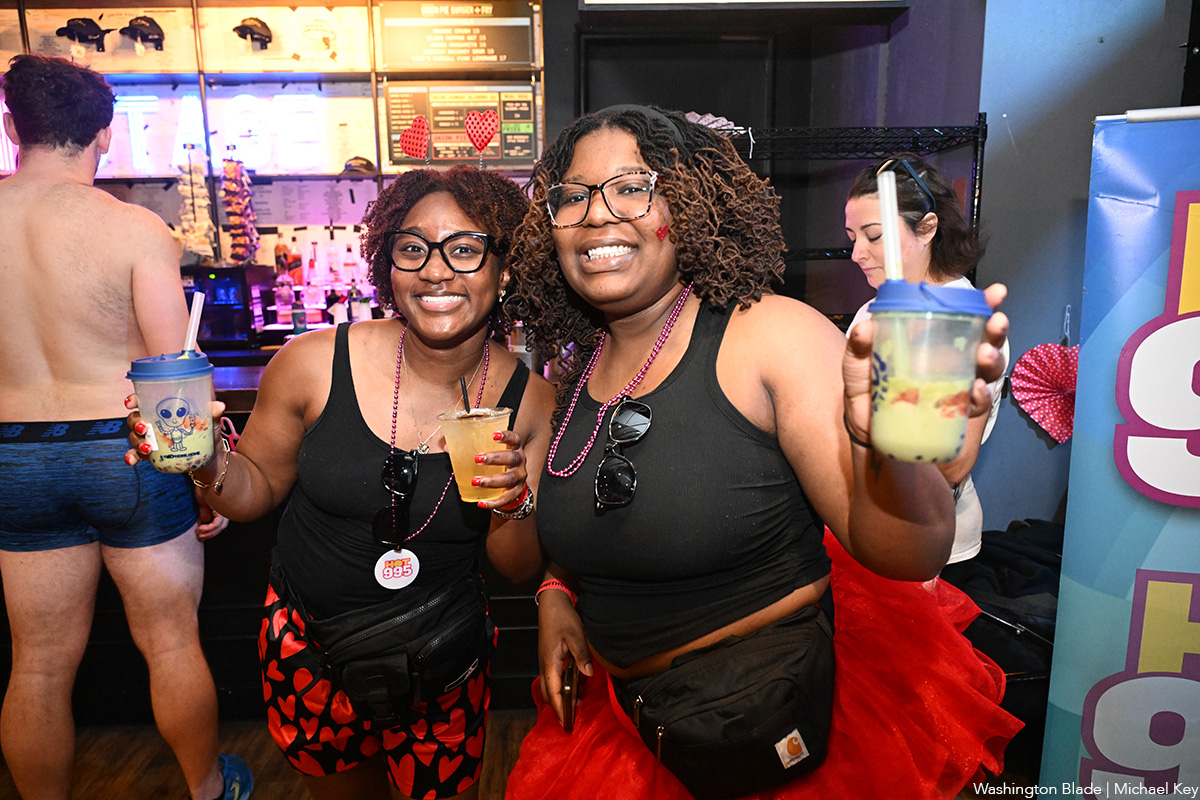
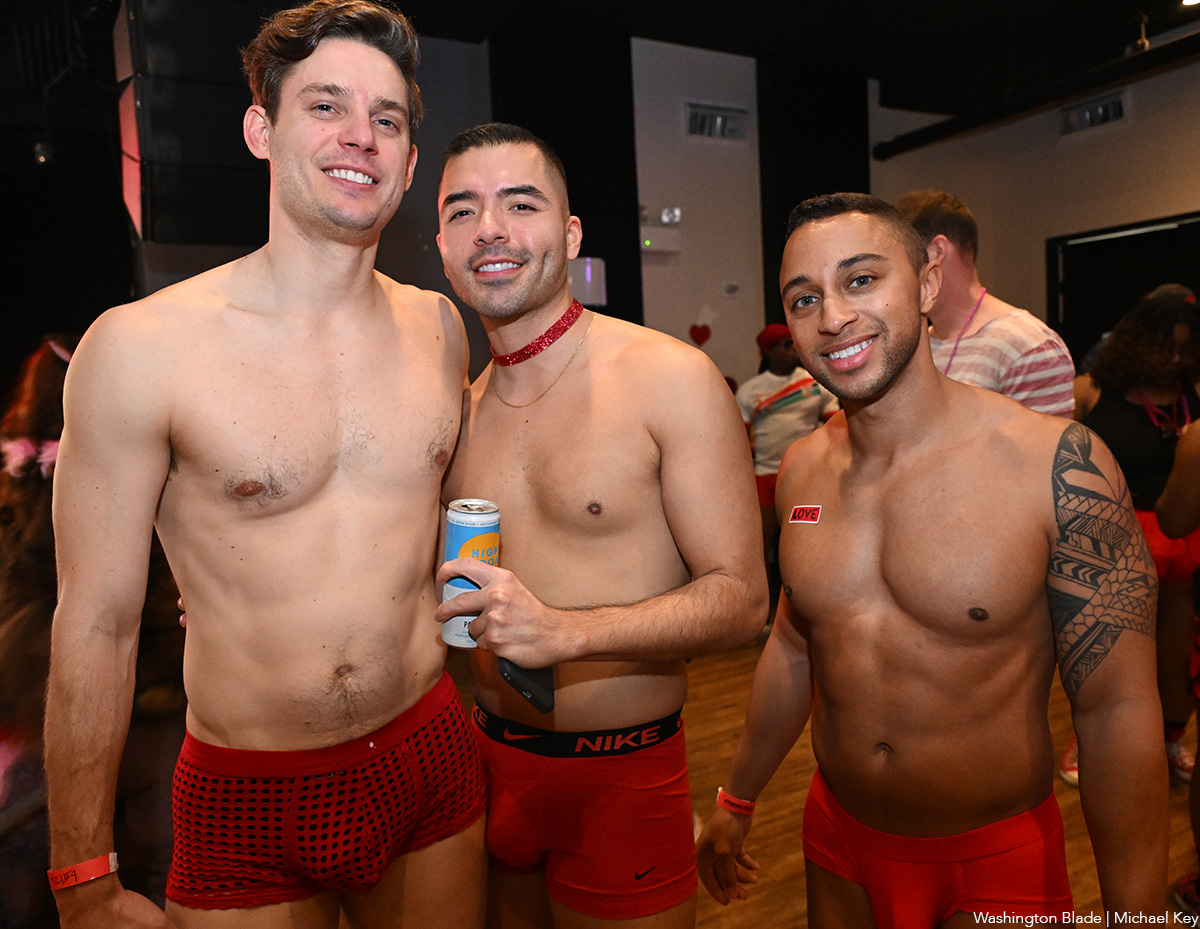
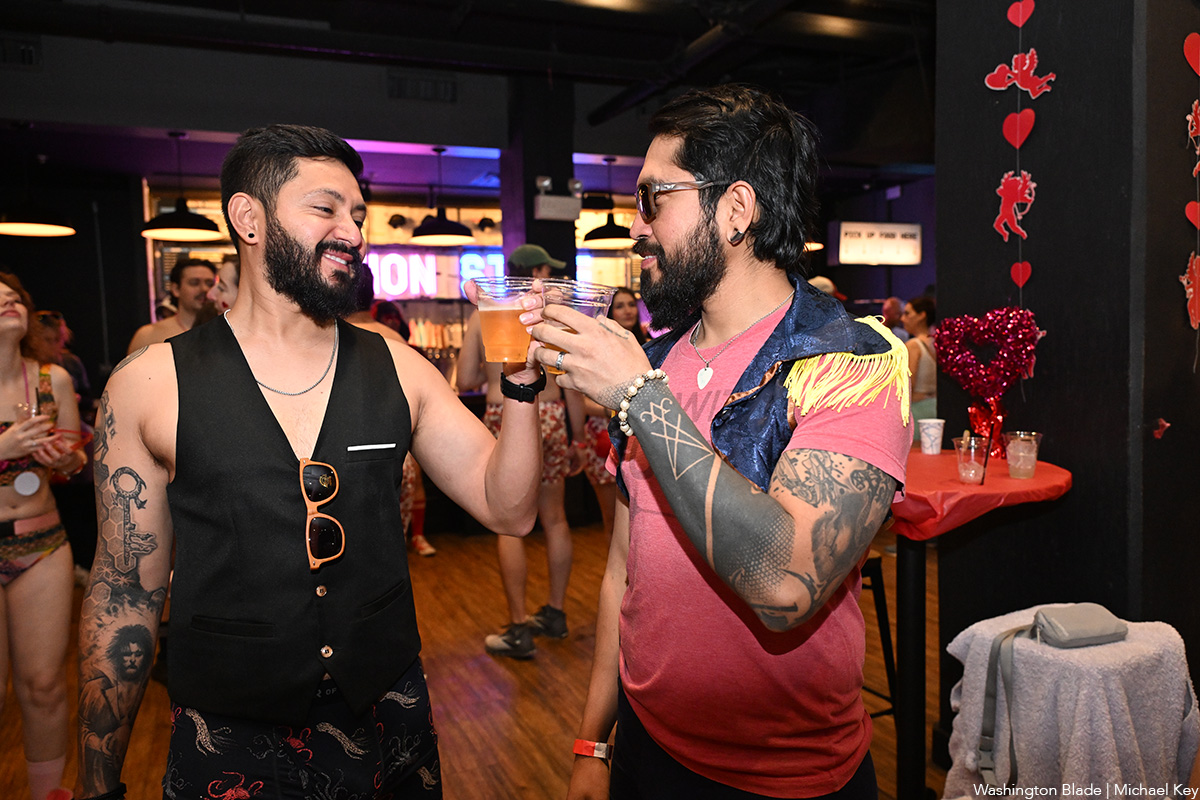
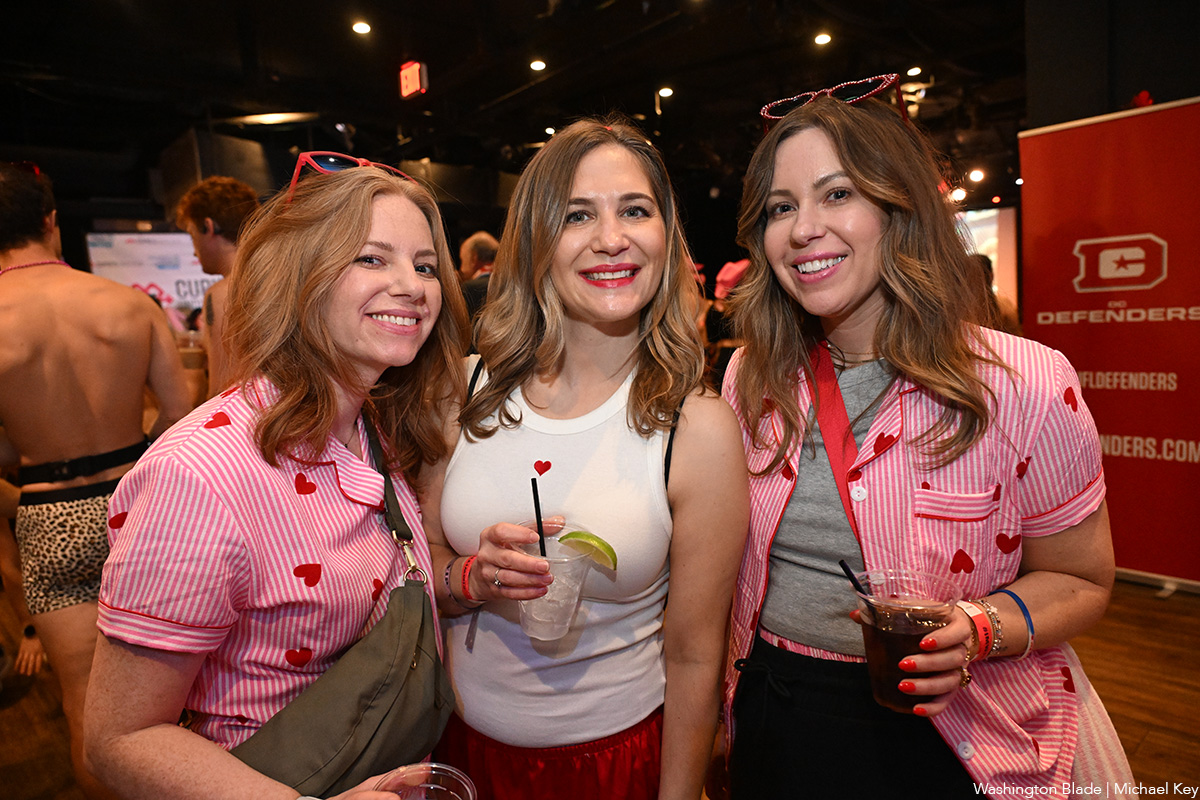
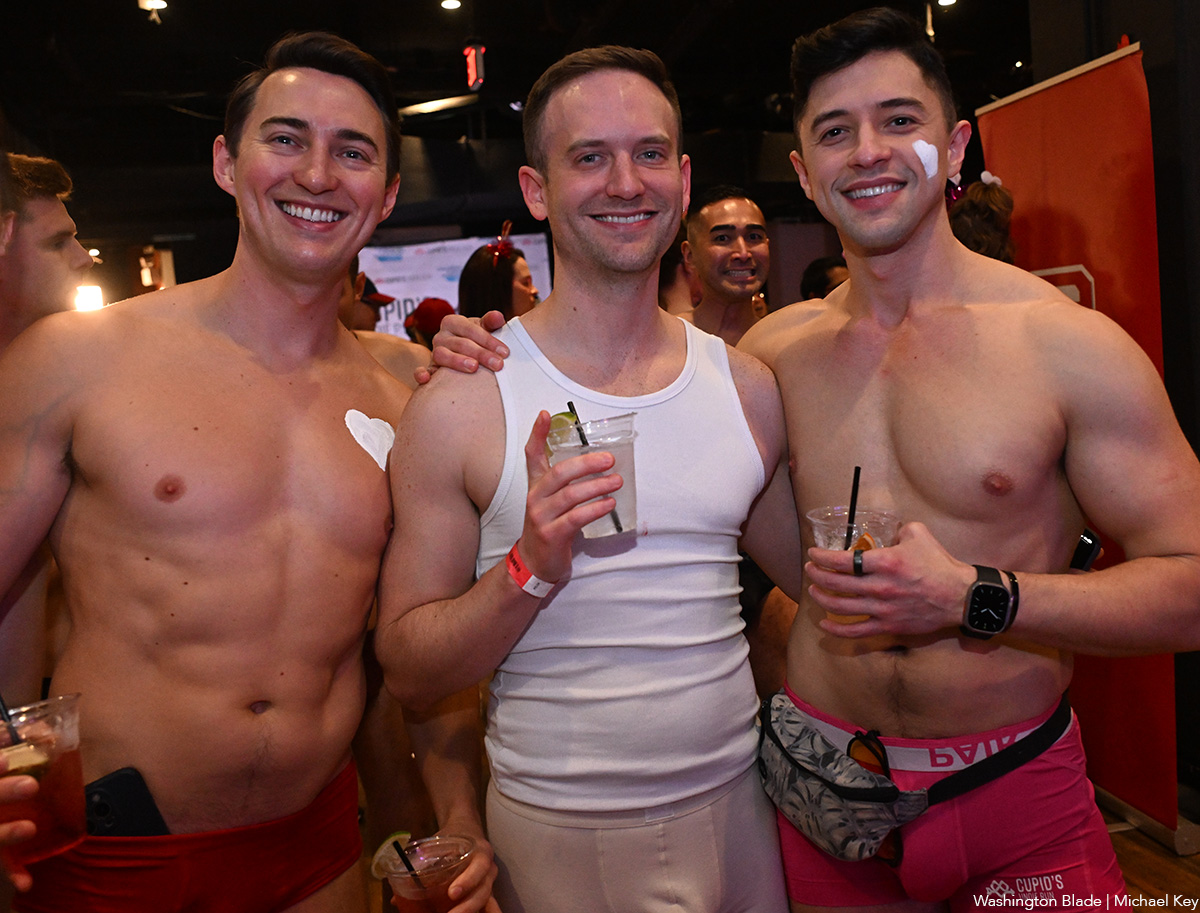
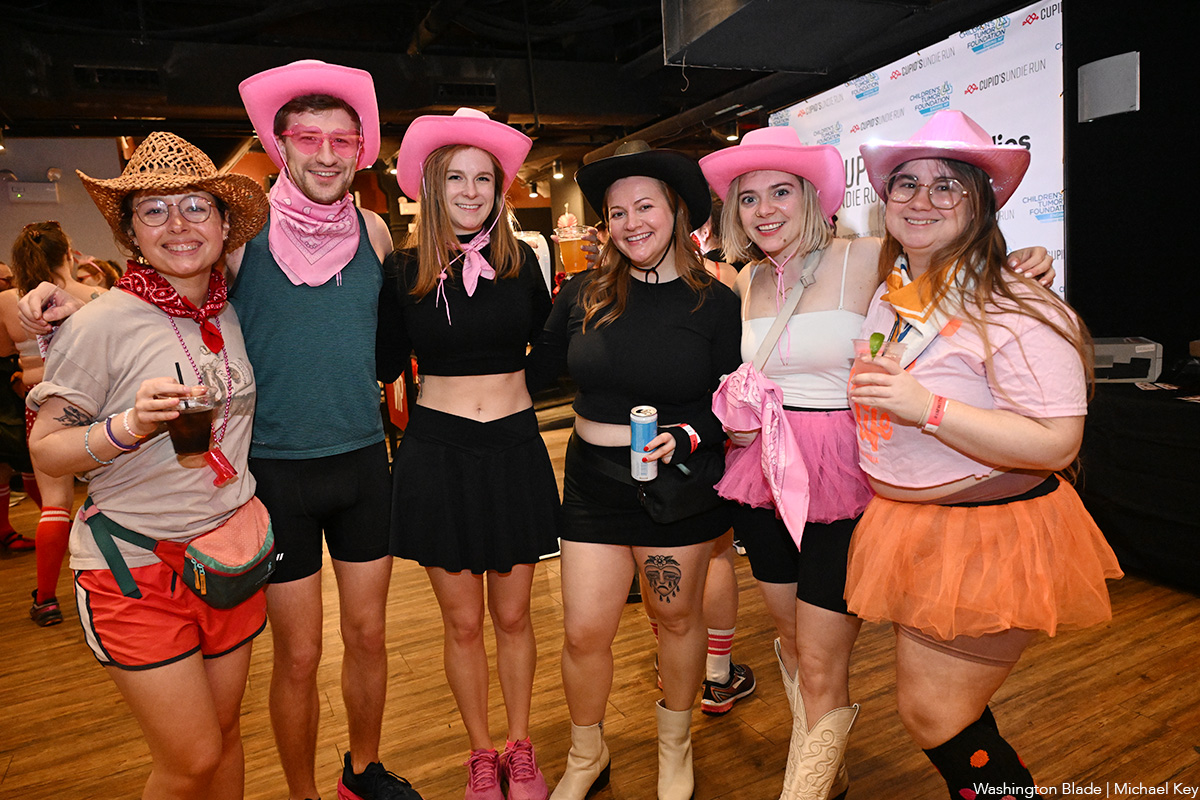
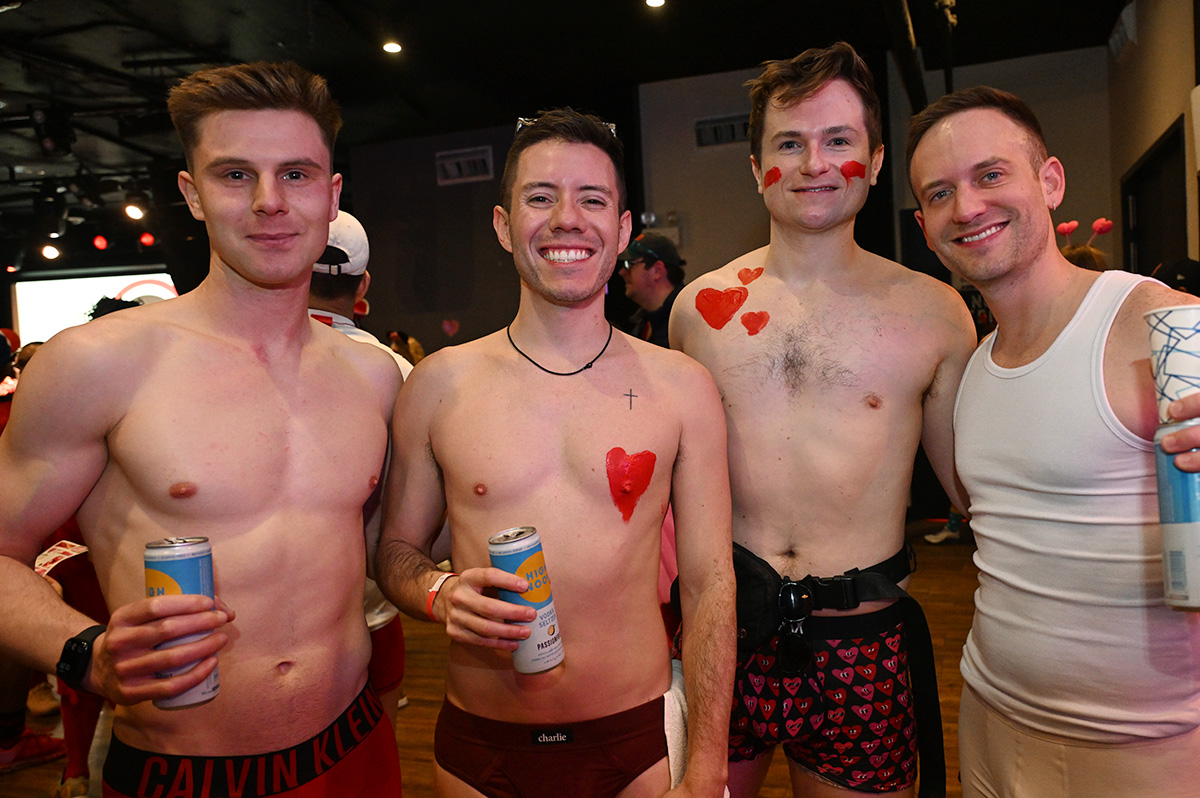
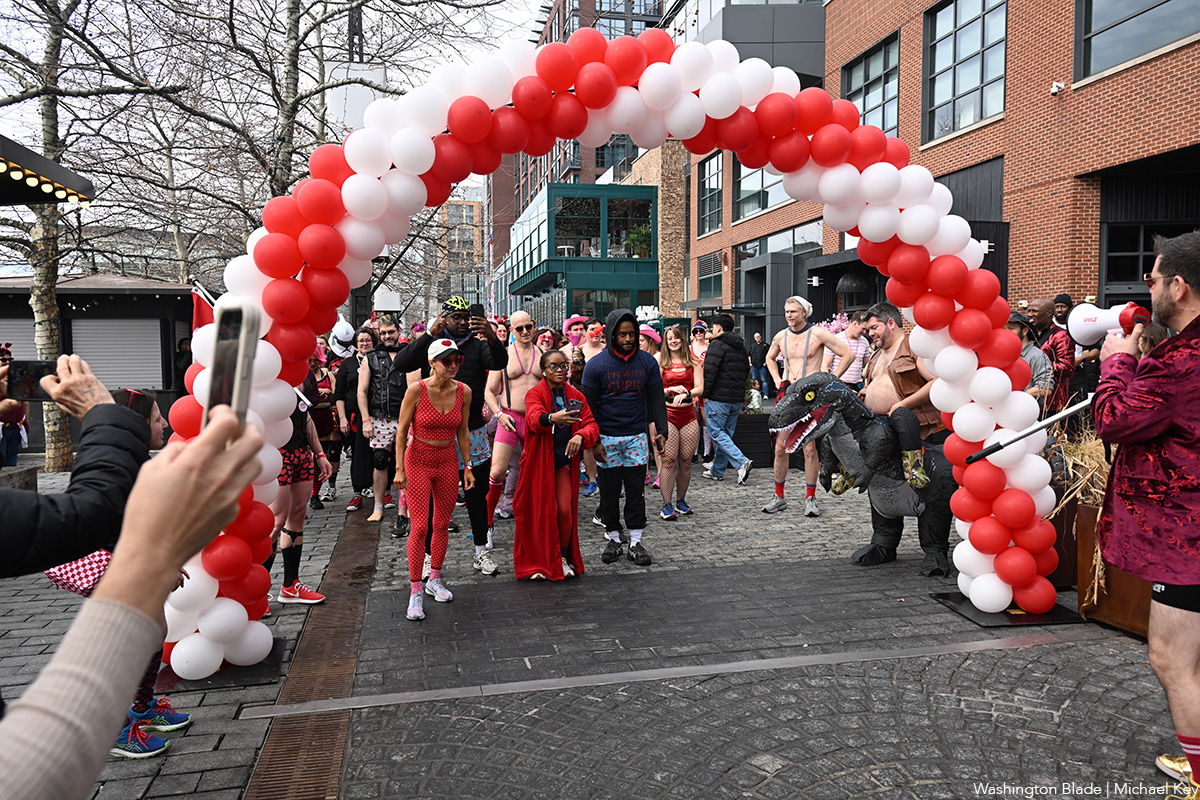
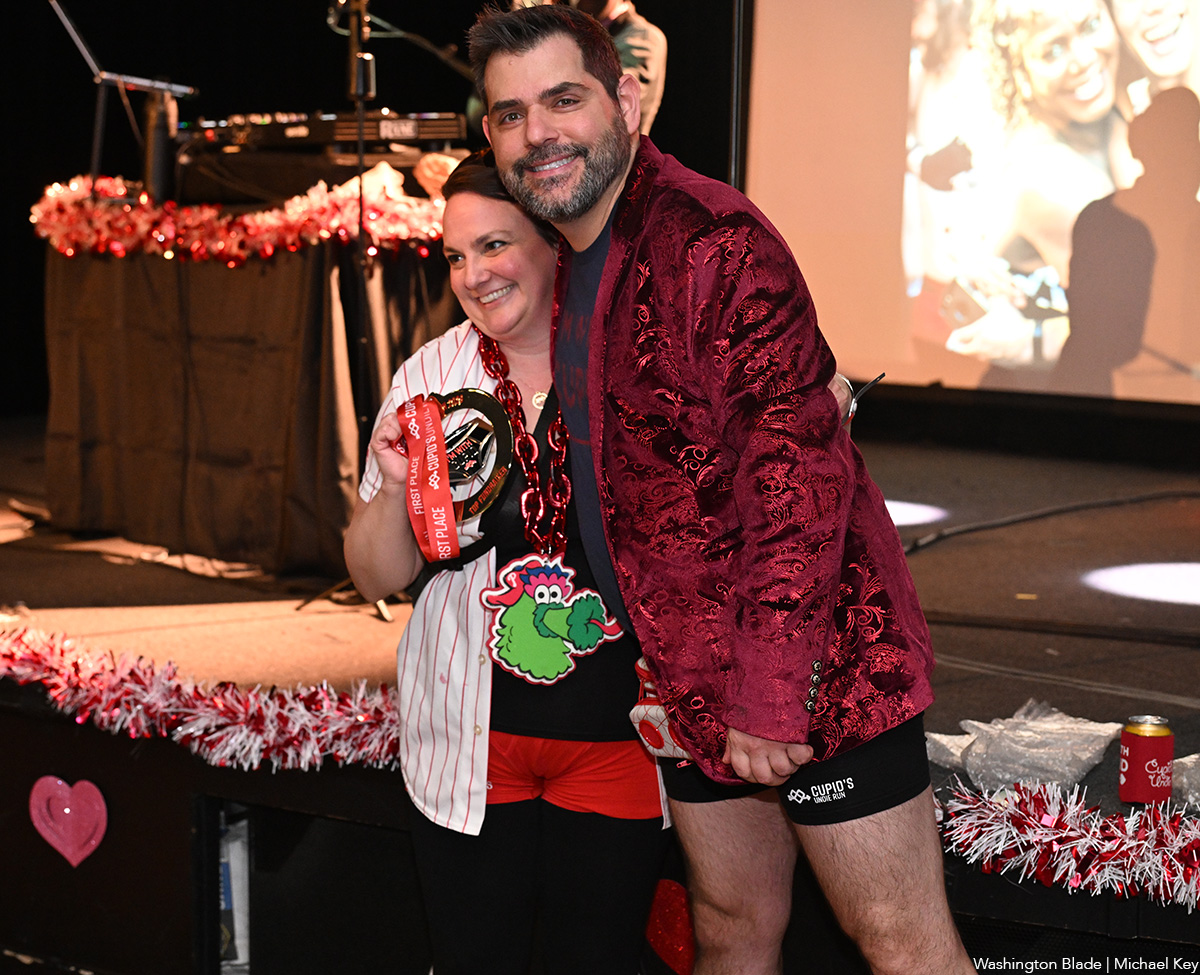
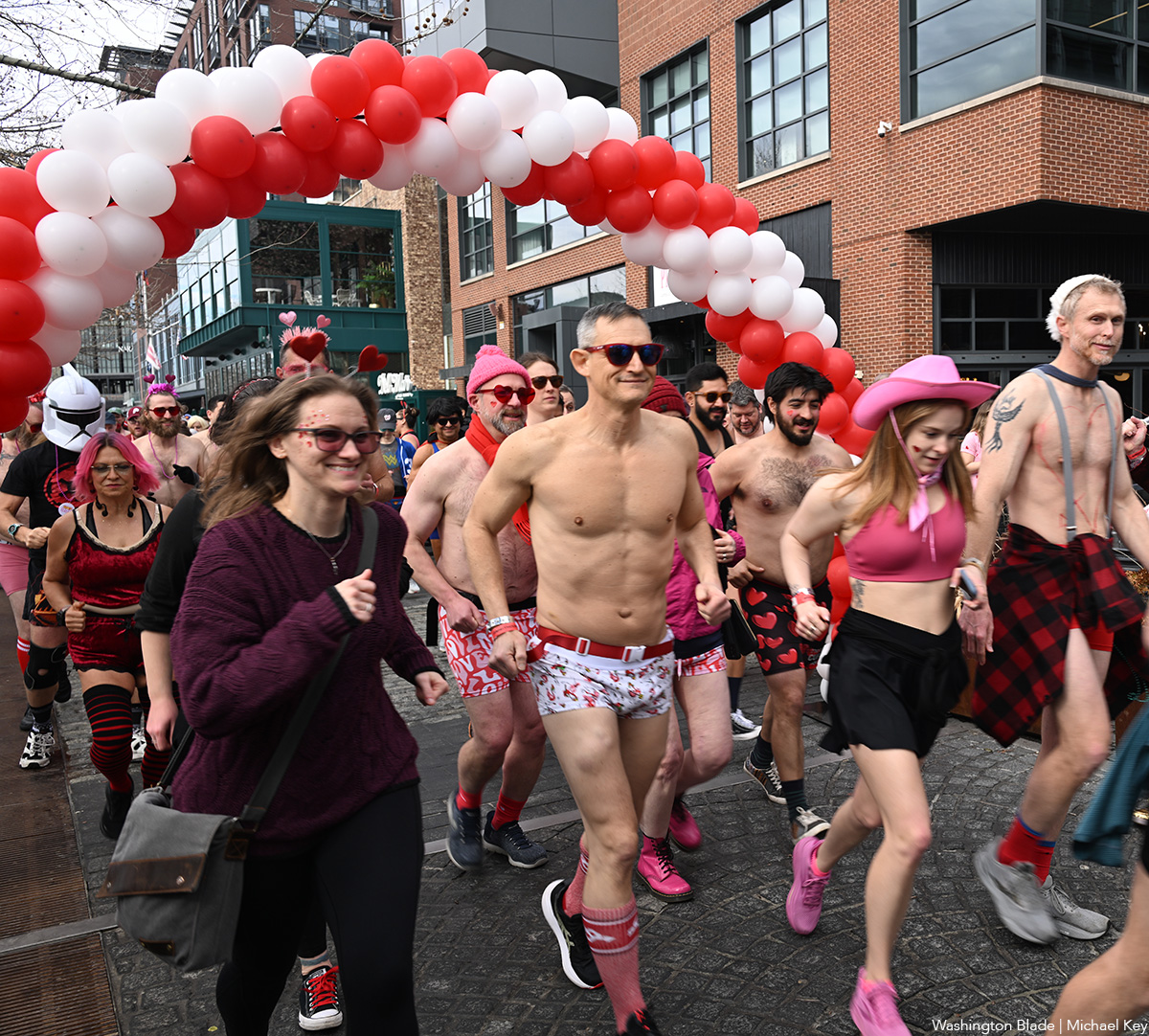
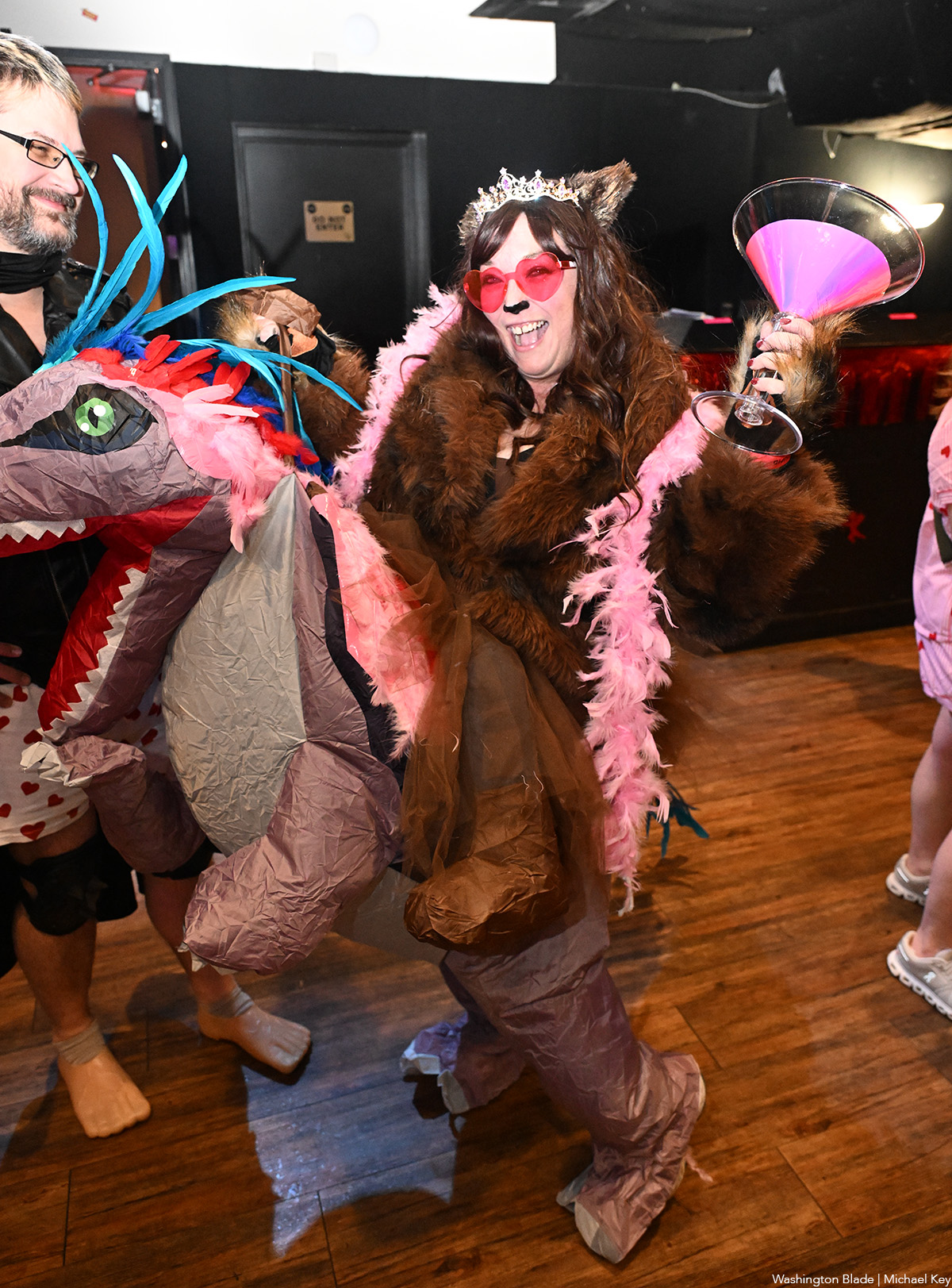
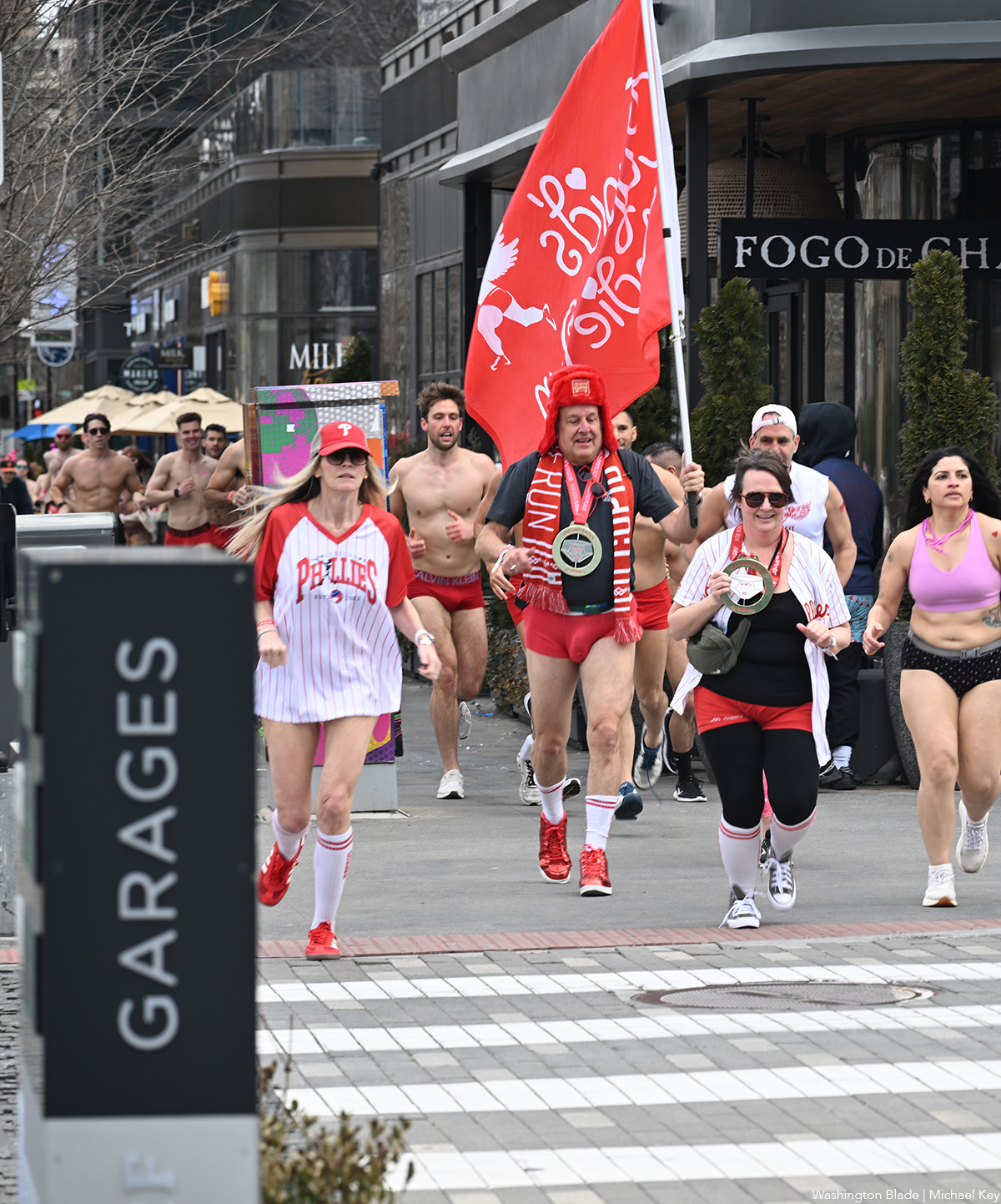
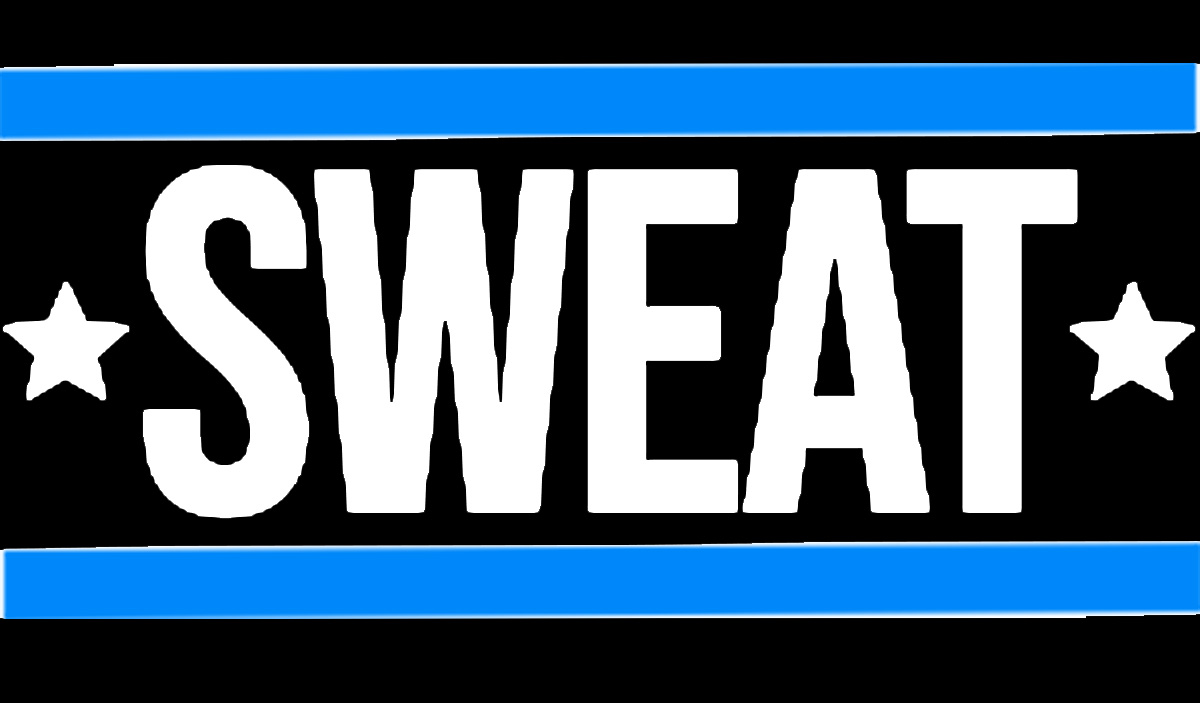
Sweat DC is officially expanding to Shaw, opening a new location at 1818 7th St., N.W., on Saturday, March 28 — and they’re kicking things off with a high-energy, community-first launch event.
To celebrate, Sweat DC is hosting Sweat Fest, a free community workout and social on Saturday, March 14, at 10 a.m. at the historic Howard Theatre. The event features a group fitness class, live DJ, local food and wellness partners, and a mission-driven partnership with the Open Goal Project, which works to expand access to youth soccer for players from marginalized communities.
For more details, visit Sweat DC’s website and reserve a spot on Eventbrite.
-

 Massachusetts5 days ago
Massachusetts5 days agoEXCLUSIVE: Markey says transgender rights fight is ‘next frontier’
-

 Opinions4 days ago
Opinions4 days agoGay Treasury Secretary’s silence on LGBTQ issues shows he is scum
-

 New York5 days ago
New York5 days agoLawsuit to restore Stonewall Pride flag filed
-

 U.S. Military/Pentagon4 days ago
U.S. Military/Pentagon4 days ago4th Circuit rules against discharged service members with HIV

